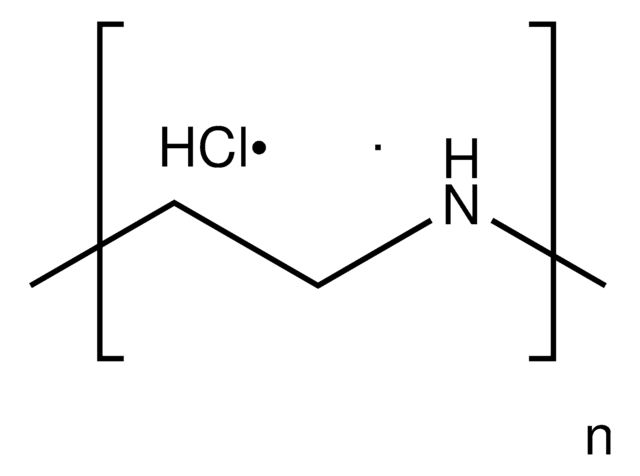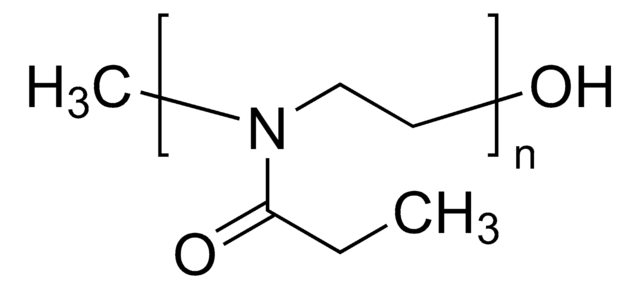765090
Polyethylenimine, linear
average Mn 10,000, PDI ≤1.3
Sinônimo(s):
PEI
About This Item
Produtos recomendados
Formulário
solid
Nível de qualidade
peso molecular
average Mn 10,000
pf
48-53 °C
PDI
≤1.3
temperatura de armazenamento
2-8°C
cadeia de caracteres SMILES
N1CC1
InChI
1S/C2H5N/c1-2-3-1/h3H,1-2H2
chave InChI
NOWKCMXCCJGMRR-UHFFFAOYSA-N
Procurando produtos similares? Visita Guia de comparação de produtos
Categorias relacionadas
Descrição geral
Palavra indicadora
Warning
Frases de perigo
Declarações de precaução
Classificações de perigo
Eye Irrit. 2 - Skin Irrit. 2
Código de classe de armazenamento
11 - Combustible Solids
Classe de risco de água (WGK)
WGK 3
Ponto de fulgor (°F)
Not applicable
Ponto de fulgor (°C)
Not applicable
Escolha uma das versões mais recentes:
Já possui este produto?
Encontre a documentação dos produtos que você adquiriu recentemente na biblioteca de documentos.
Os clientes também visualizaram
Artigos
Delivery of Nucleic Acids Using Polymers
Professor Yoshiki Katayama (Kyushu University, Japan) discusses recent advances in drug delivery systems and strategies that exploit the EPR effect, with a special focus on stimuli-responsive systems based on novel materials.
Wide range of functional polymers for biomedical applications have been synthesized and structurally characterized. Several classes of polymers including biodegradable polymers, hydrophilic & amphiphilic polymers, and stimuli responsive polymers have been prepared using controlled and directed functionalization via "living" polymerization such as RAFT, ionic and ring opening polymerization. Selected polymers have been studied for their structure-properties relationship. "
Global Trade Item Number
| SKU | GTIN |
|---|---|
| 765090-1G | 4061835508716 |
Nossa equipe de cientistas tem experiência em todas as áreas de pesquisa, incluindo Life Sciences, ciência de materiais, síntese química, cromatografia, química analítica e muitas outras.
Entre em contato com a assistência técnica









